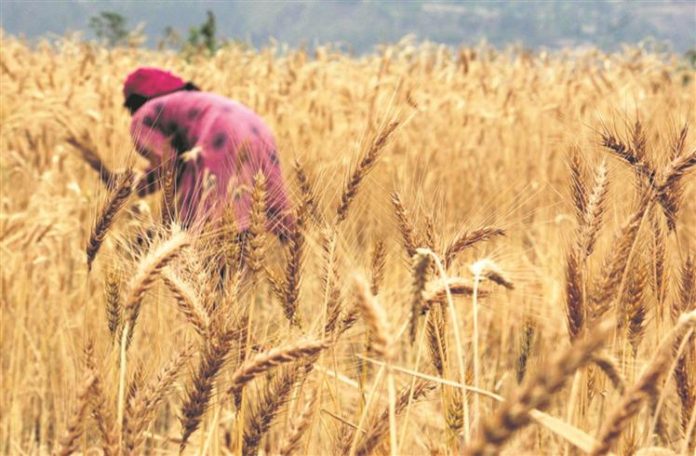New Delhi: In a major U-turn amid calls for ban/cap to curb rising prices, India last night decided to ban wheat exports with immediate effect.
An official notification called the action a part of measures to control rising domestic prices.
However, the export shipments for which irrevocable letters of credit (LoC) have been issued on or before the date of this notification will be allowed, according to the Directorate General of Foreign Trade (DGFT) notification dated May 13.
Wheat exports will be allowed on the basis of permission granted by the Government of India to other countries to meet their food security needs and based on the request of their governments, it said.
Just last week on May 5, the Centre categorically ruled out imposing curbs on exports saying that farmers are getting higher than MSP for wheat.
This even as due to an increase in market prices, higher demand by private players for domestic and export purposes and expected fall of 5.7 per cent in the output, the Centre’s wheat procurement is expected to decline by more than half to 19.5 million tonnes in the current Rabi Marketing Season.
Notably, the Centre has revised downwards the estimate for wheat production to 105 MT in the 2021-22 crop year from the earlier projection of 111.32 MT due to productivity being affected due to early onset of summer this year.
However, ruling out any concern over meeting the domestic demand for PDS or the possibility of imposing any curbs on exports, Food Secretary Sudhanshu Pandey said the purchase by the government agency is less because of increase in market prices and higher demand by private players both for domestic as well as export purposes.
“Due to higher market prices, large quantities of wheat are being bought by traders at a higher rate than MSP, which was good for the farmers. In MP, UP, Rajasthan, Gujarat, farmers selling to traders/exporters at prices (21-24 Rs/kg), more than MSP (20.15 Rs/kg).
“The government’s wheat procurement has reduced but the availability and procurement of rice is sufficient to meet the demand under the National Food Security Act,” he added.
Expert, however, advocated “caution”, including a ban or at least an upper limit on experts. A country like India needs surplus stocks, they said, adding that private traders “cannot be allowed to dictate the market”.
Earlier, the government had fixed a wheat procurement target at 44.4 MT for 2022-23 as against an all-time high of 43.34 MT in the previous marketing year.


